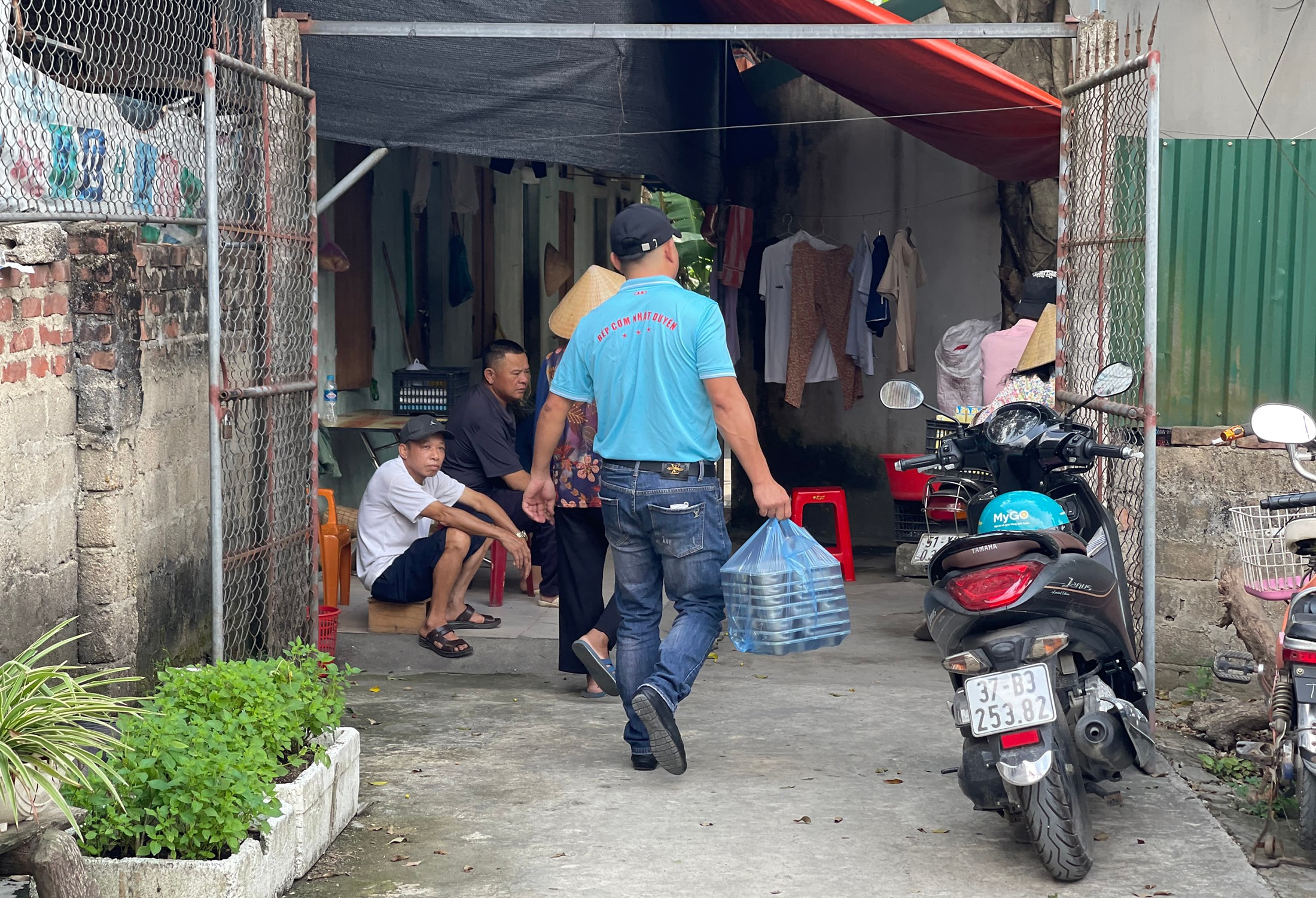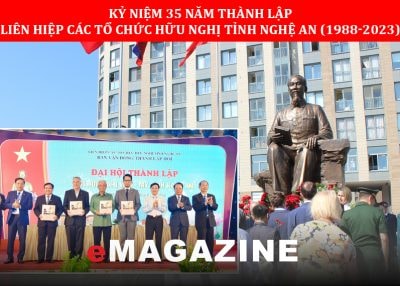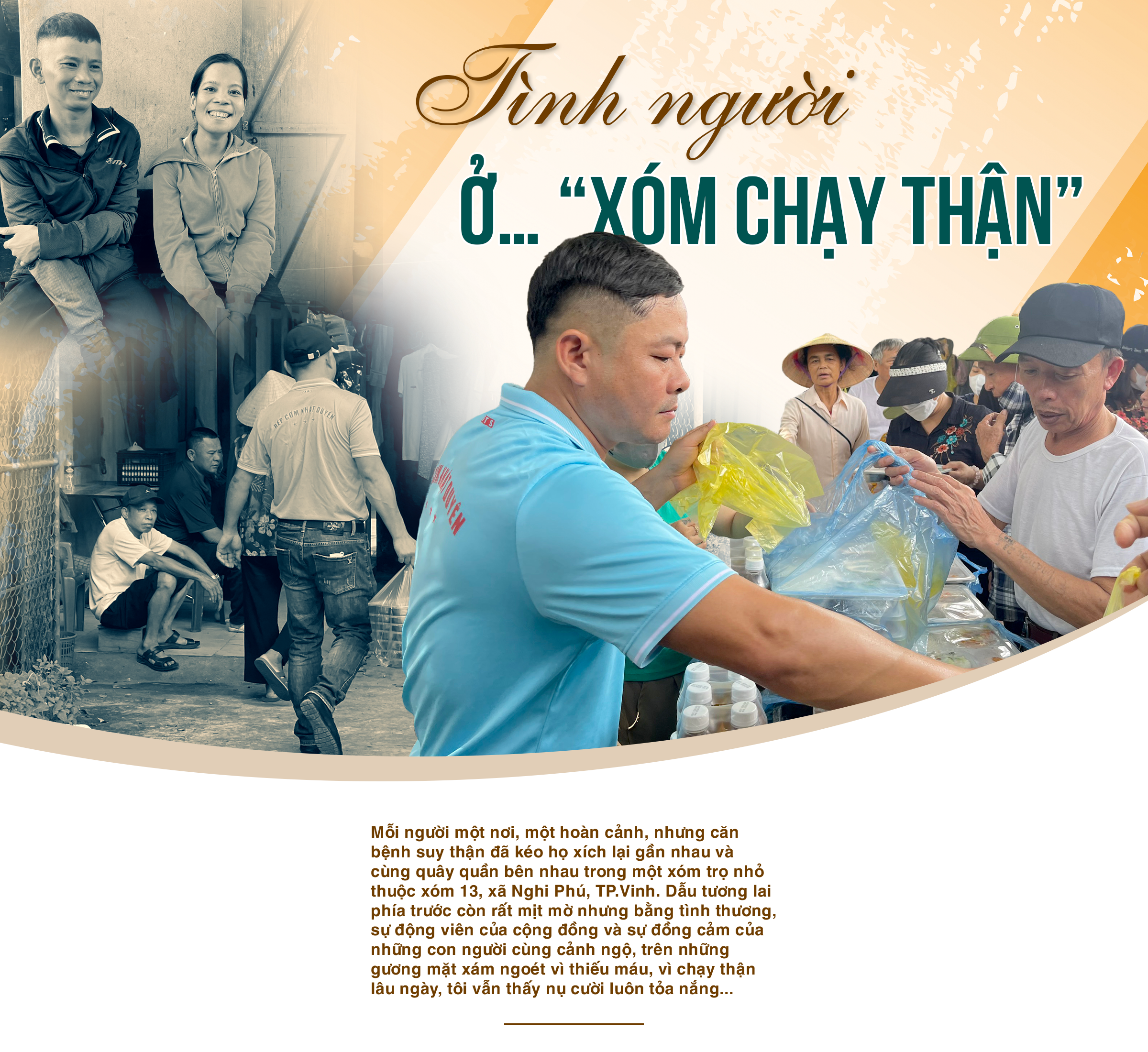

I arrived at the “dialysis village” in Hamlet 13, Nghi Phu Commune, one day in early May, when the first waves of summer heat had begun to pour down fiercely. The row of 10 corrugated iron-roofed boarding houses thus became as hot as a furnace. This boarding house is located deep in a winding alley of Ho Tong Thoc Street, close to the Provincial General Hospital and Hospital 115. In a place where life and death are like a fragile thread, we can see that human love is even stronger.
Under the sweltering heat of nearly 40 degrees Celsius, residents of the “dialysis neighborhood” could only pull each other out onto the porch to sit and enjoy the cool breeze. When I arrived, the residents had just returned from dialysis and seemed to be in better health. However, on their gaunt faces, ashen skin, traces of fatigue and bleeding arms were still visible.
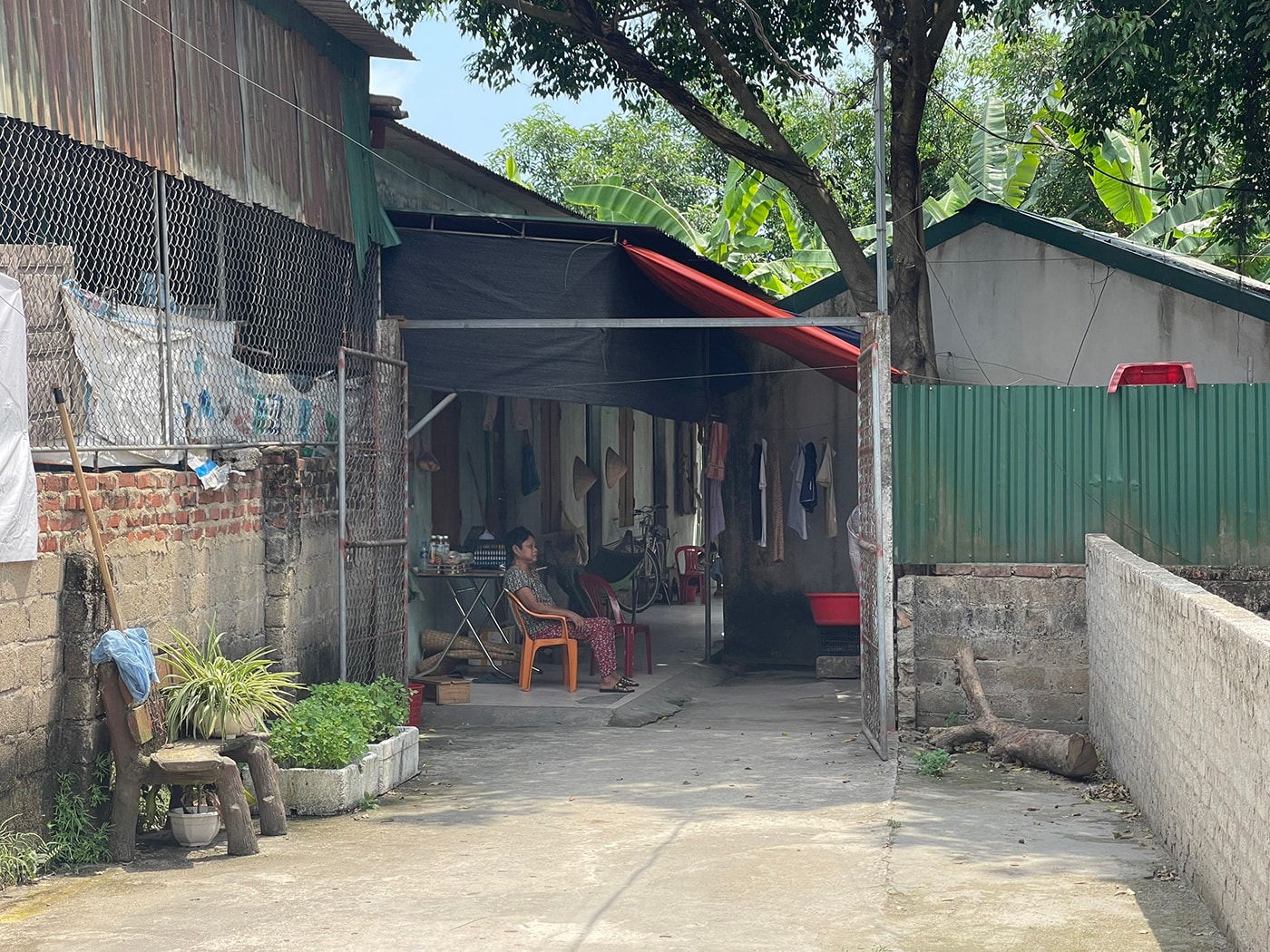
Mr. Phan Quoc Quyen (born in 1986), residing in Hoa Thanh commune (Yen Thanh), is the one who understands quite well each situation in this "dialysis village". Being the most agile person, Mr. Quyen ran to get chairs and invited us to sit. Then he told us that most of the residents in this village have severe kidney failure and have to undergo continuous dialysis to prolong their lives. 3 times a week, and regularly all year round, if they miss a time, their health will be exhausted, their blood pressure will drop, and their limbs will become weak. After each dialysis session, the dialysis patients seem to become different people, their gestures will be more active and agile.
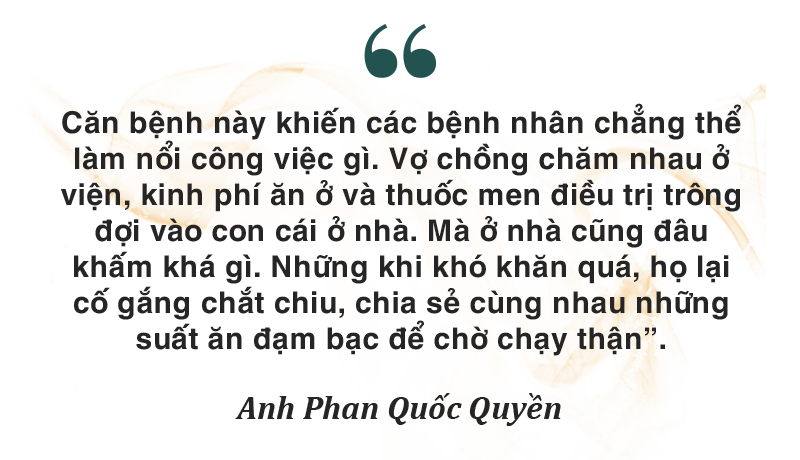
I met Mrs. Nguyen Thi Hoa (residing in Ky Tan commune, Tan Ky district), staying in room number 1. Mrs. Hoa is the person with the most "seniority" in this "dialysis village" with 16 years. Accompanying her in this battle is her husband - Mr. Nguyen Van Trien. Since Mrs. Hoa got sick, Mr. Trien has given up all his farming and gardening work for his children at home, brought his old motorbike to Vinh to work as a construction worker to earn money to take care of his wife. When we arrived, Mr. Trien had not returned from work yet. Mrs. Hoa sat alone outside the door waiting for her husband. On the table were 2 uneaten meals and a baby chick in a box chirping.
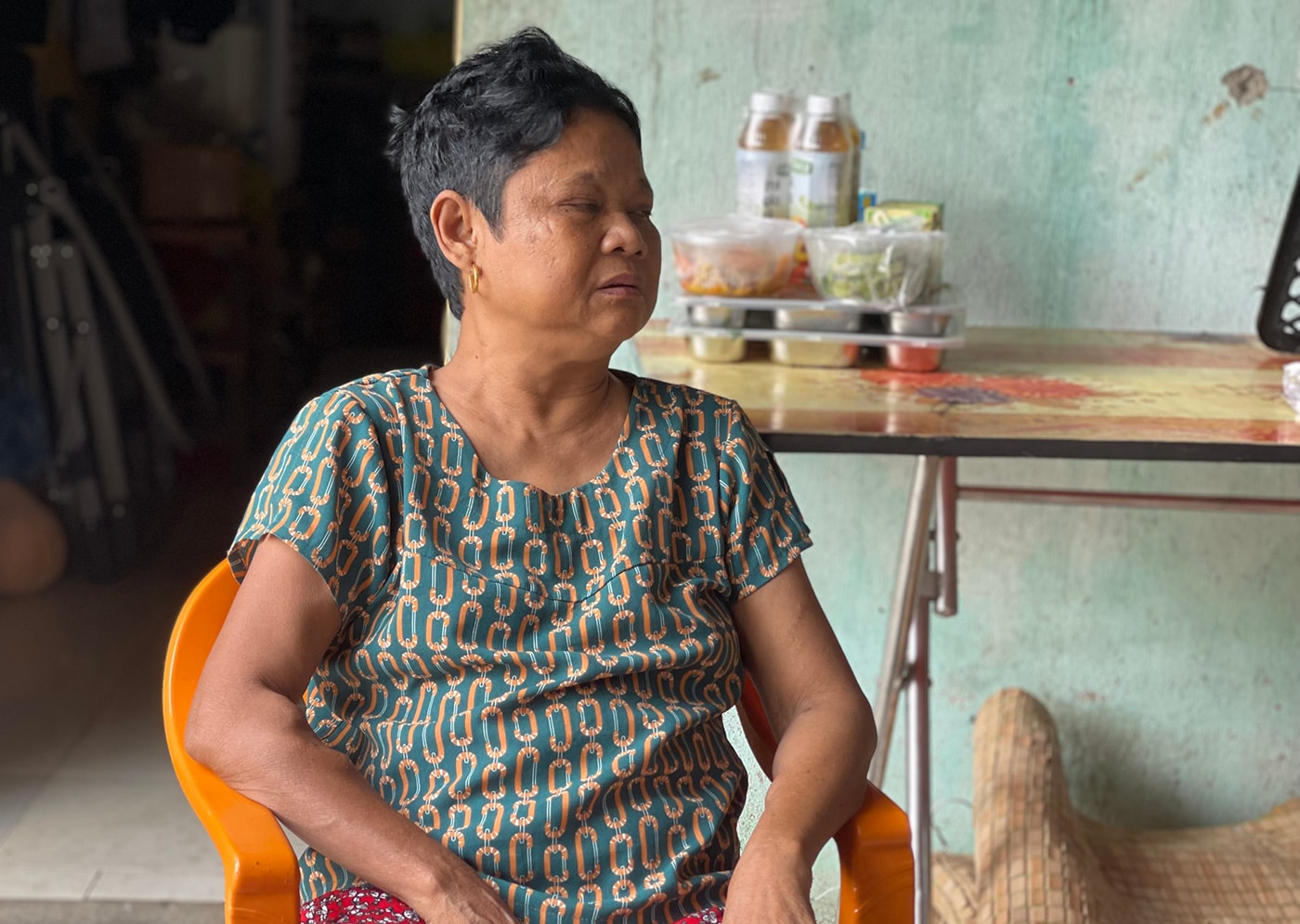
Mrs. Hoa said, wait for him to come home to eat for fun, she can't eat alone. Pointing at the chick, Mrs. Hoa smiled and said, the other day her children came to visit, they gave them dozens of eggs, but they were too hot and hatched. So he took a plastic box and put the chick in it, so she could take care of it to distract herself.
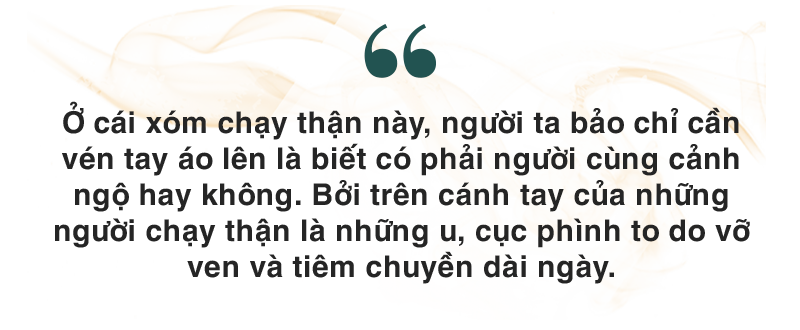
In addition to Mrs. Hoa, whose husband came to take care of her, Mrs. Nguyen Thi Phuong also had her husband accompany her. Mrs. Phuong is from Long Son commune (Anh Son). She has been on dialysis for 4 years, but in the past 2 years, her illness has gotten worse, combined with complications from diabetes, so her eyes can no longer see. Therefore, her husband has to be there every day and cannot go anywhere. Her children occasionally send vegetables and rice from the countryside.
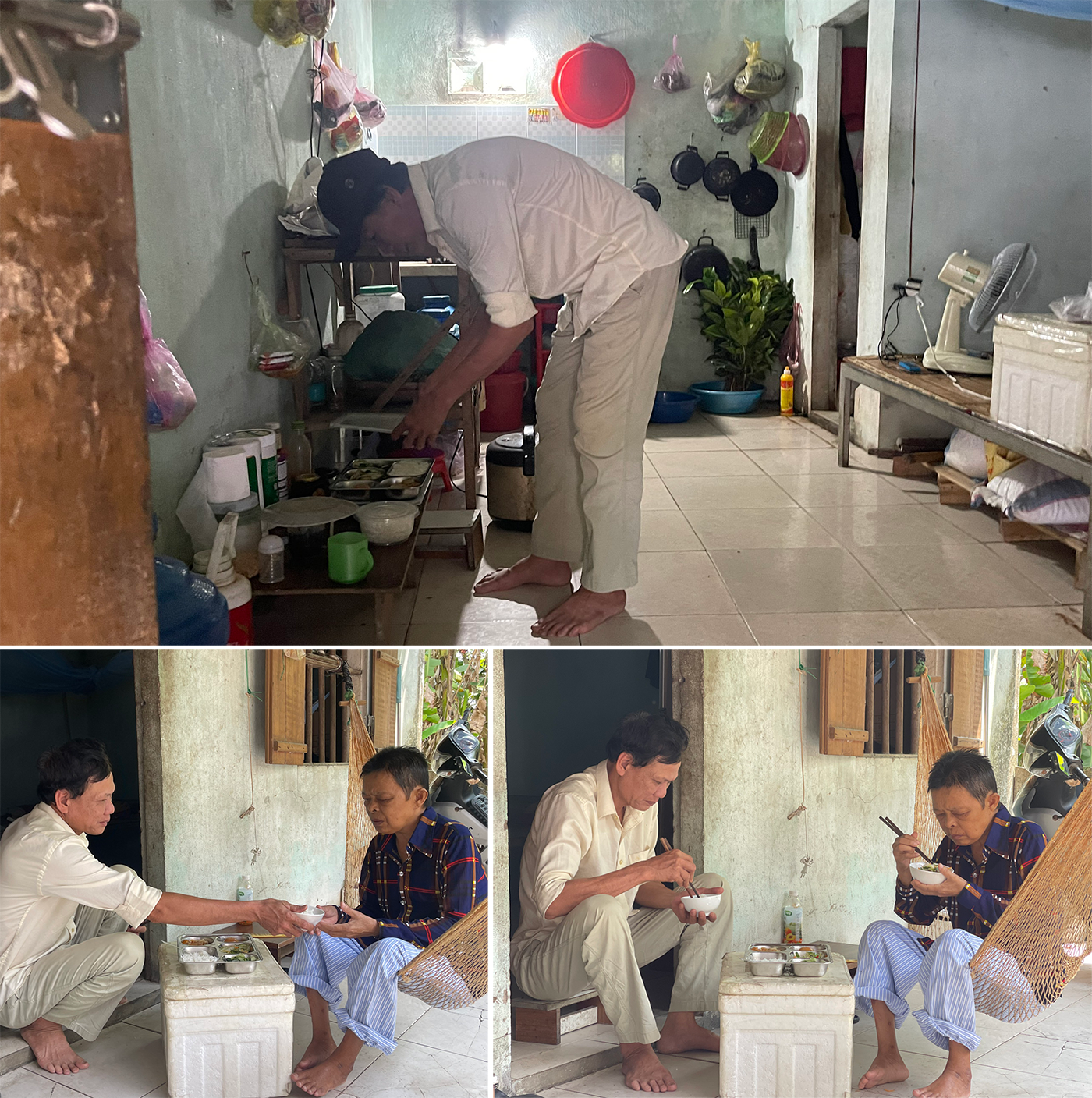
In the 10 small rooms in the “dialysis neighborhood” are 10 different situations, but most of the dialysis patients are people in difficult circumstances, trying to cure their illness in a desperate way. People from Tan Ky, Anh Son, Thanh Chuong come down, some from Yen Thanh, Quynh Luu come in, and there are also people from Ha Tinh. They have to stay in their rented rooms, counting the days.
Ms. Le Thi Mai (born in 1982), residing in Lien Truong hamlet, Thanh Lien commune (Thanh Chuong), is also a special case. Ms. Mai used to work for 15 years as a worker for the Youth Volunteer Force 1 stationed in Long Son commune (Anh Son). In 2016, she had to quit her job to go to Vinh for dialysis. Sadly, in Ms. Mai's family, her brother also had to undergo dialysis before, and he passed away in 2018. Now, her medical expenses depend on her 70-year-old mother in the countryside.
Knowing that I had been to the Youth Volunteer Force 1 many times and that it had now been officially disbanded, Ms. Mai had tears in her eyes. She enthusiastically told about her exciting time and the colleagues she had worked with. For the past 8 years, she had been alone in this “dialysis village” surrounded by the care and love of patients in the same situation.
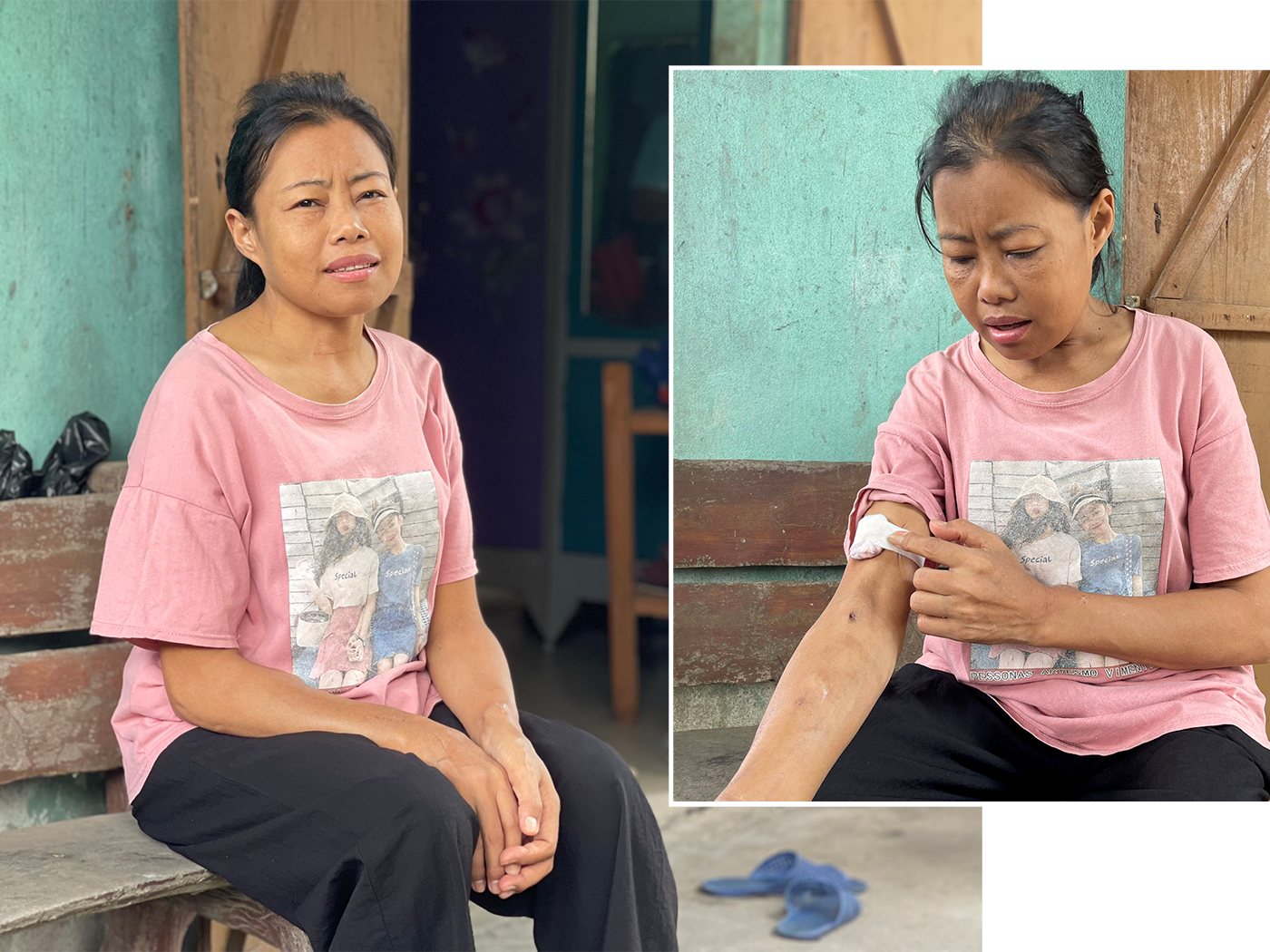

I met Nguyen Ngoc Hung and Le Thi Phuong when they had just returned from dialysis. Hung and Phuong's story is known to many people in this boarding house. It is proof that love always blooms in any situation, even the most difficult.
Hung was born in 1989 in Lang Hoa hamlet, Phong Thinh commune (Thanh Chuong). At the end of 2004, when he had just entered 10th grade, the terrible kidney failure disease forced Hung to drop out of school, pack his belongings and move to Vinh, starting the days of "eating hospital food more than home-cooked food".
In the early days, Hung was often picked up by his parents, and every two days he went to Vinh for dialysis. But his family had many siblings, and he felt sorry for his parents' hard work as farmers, so later Hung went to dialysis alone. He went to Vinh and worked many jobs, from driving a motorbike taxi to being a shipper, to help his parents with medical expenses. In 2016, through a social networking site for people on dialysis, Hung met Phuong, a girl born in 1994 from Xuan Hung commune, Tho Xuan (Thanh Hoa). In 2011, while in 12th grade, Phuong had to drop out to go to dialysis. After meeting Hung, she moved to Vinh for treatment.
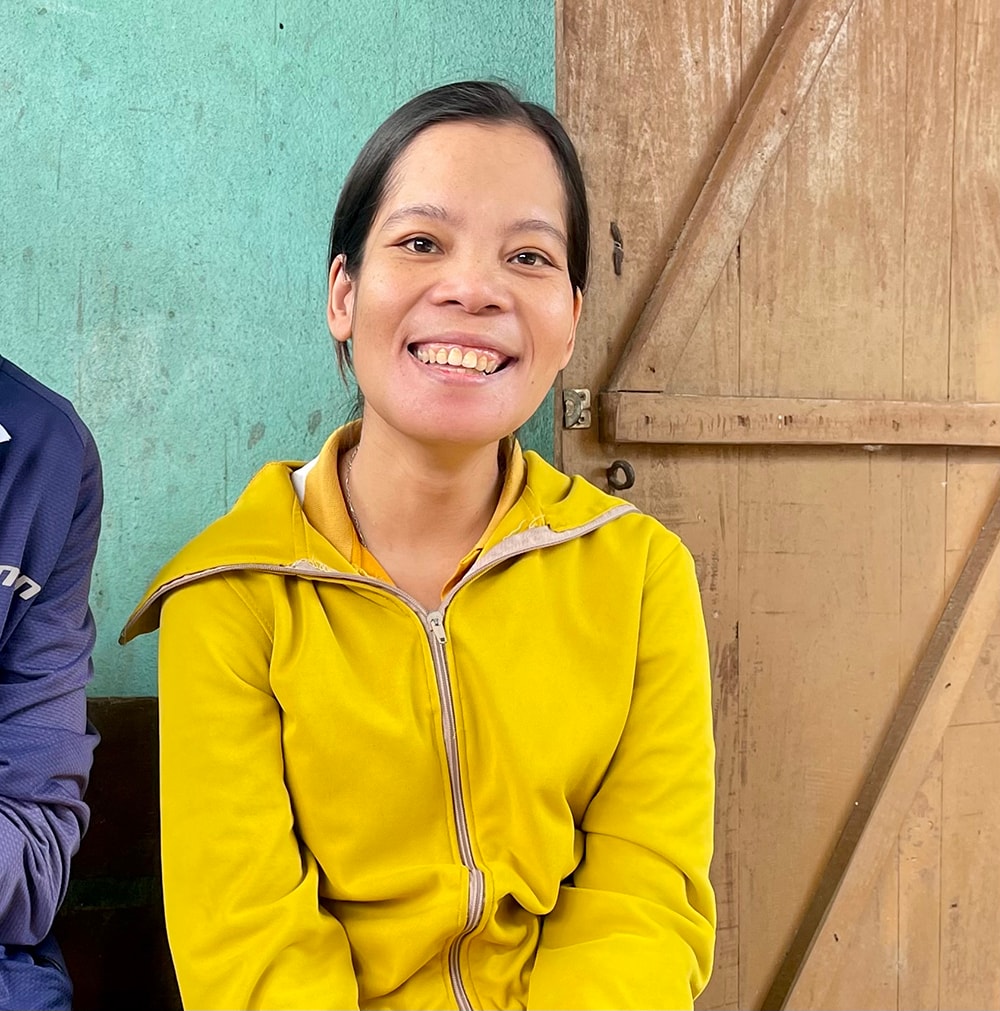
Talking about her love story, Phuong smiled and said that when she got sick and had to undergo dialysis, her father, who was working in the South at the time, had to move back to his hometown to take care of her. But when he heard that his daughter had moved to Vinh for dialysis to be near the person he loved, his father immediately scolded him, "You lied to me. You said I moved back to my hometown to take care of you, but you ran to Vinh to follow the call of love." People often say, "If heaven does not accept earth, earth must accept heaven." Before the love of the young couple, at the end of 2016, both families officially met and held a dinner to confirm their love for their two children.
Hung and Phuong are now undergoing dialysis at Vinh University Medical Hospital. With this terrible disease, they never thought or dared to think that they would have children. Instead of working as shippers like before, since 2019, the two young people have switched to selling sugarcane juice. Every evening, they push their cart of sugarcane juice to sell on Truong Van Linh Street, earning extra money for rent and medicine.
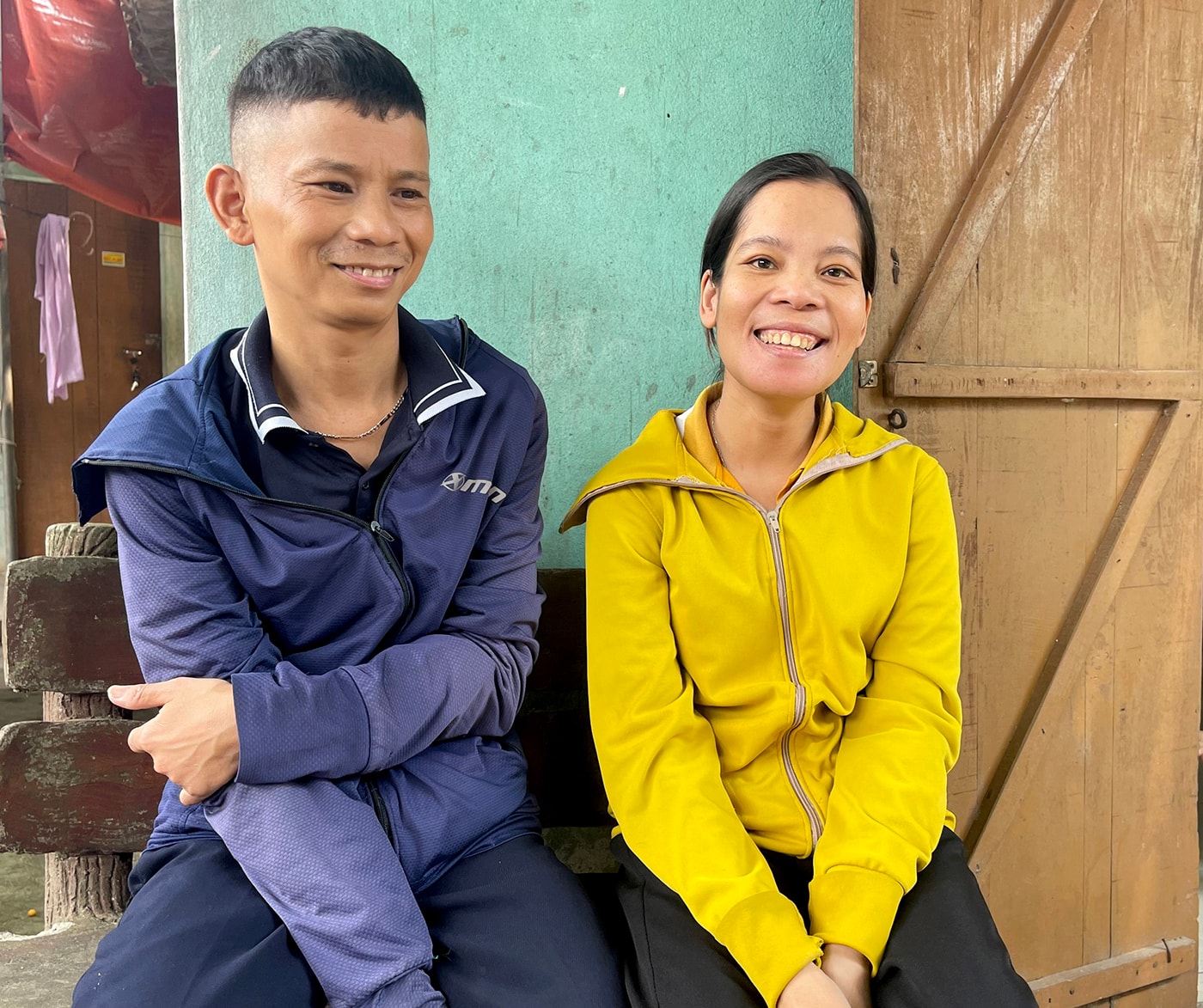
Is selling sugarcane juice a good income? – I asked. Hung said, if it is sunny, he can earn a few hundred every evening, enough to cover the cost of more than 1 million VND for the room. So what about if it rains or in winter? Then I will be a shipper – Hung said, then held Phuong’s hand tightly and smiled. A bright smile. I suddenly saw in the eyes of the young couple, happiness is so simple and ordinary.

When we visited the “dialysis village” it was also the time when members of Nhat Duyen Rice Kitchen brought 100 meals to the patients here and the patients in other surrounding villages. This is a weekly activity in which Nhat Duyen Rice Kitchen brings free meals to the patients in dialysis.
Ms. Nguyen Ngoc Nga, from Quynh Bang (Quynh Luu), one of the initiators and companions of this kitchen since 2022, shared: In early 2022, after a period of organizing many charity programs, the brothers and sisters in the group had the idea of building a kitchen to support poor patients. Through the survey, it was found that dialysis patients are those in difficult circumstances and need the most help, so the group made a plan and arranged to cook 100 meals every Wednesday noon to send to dialysis patients.

As a graduate of Vinh Medical University, Ms. Nga understands the situation of dialysis patients very well. Therefore, when planning the menu, it will be different from other patients, especially the dishes that must be cooked lightly but still ensure the flavor. To cook 100 meals, every Tuesday night, the group members gather to prepare the raw materials. On Wednesday morning, they come to cook and bring them to the patients when they have just returned from dialysis.
Currently, Nhat Duyen Rice Kitchen has about 30 regular members. The members work in many different fields, and every month they deduct from their income to support cooking meals. Mr. Tran Lam, who works in the mechanical field, is one of the members of Nhat Duyen Rice Kitchen. He shared: The members who participate in cooking rice to support poor patients do not distinguish between rich and poor. Those who have a lot support a lot, those who have little support a little. Some people support with money, others support with vegetables and rice. All are aimed at poor patients, the disadvantaged in society.
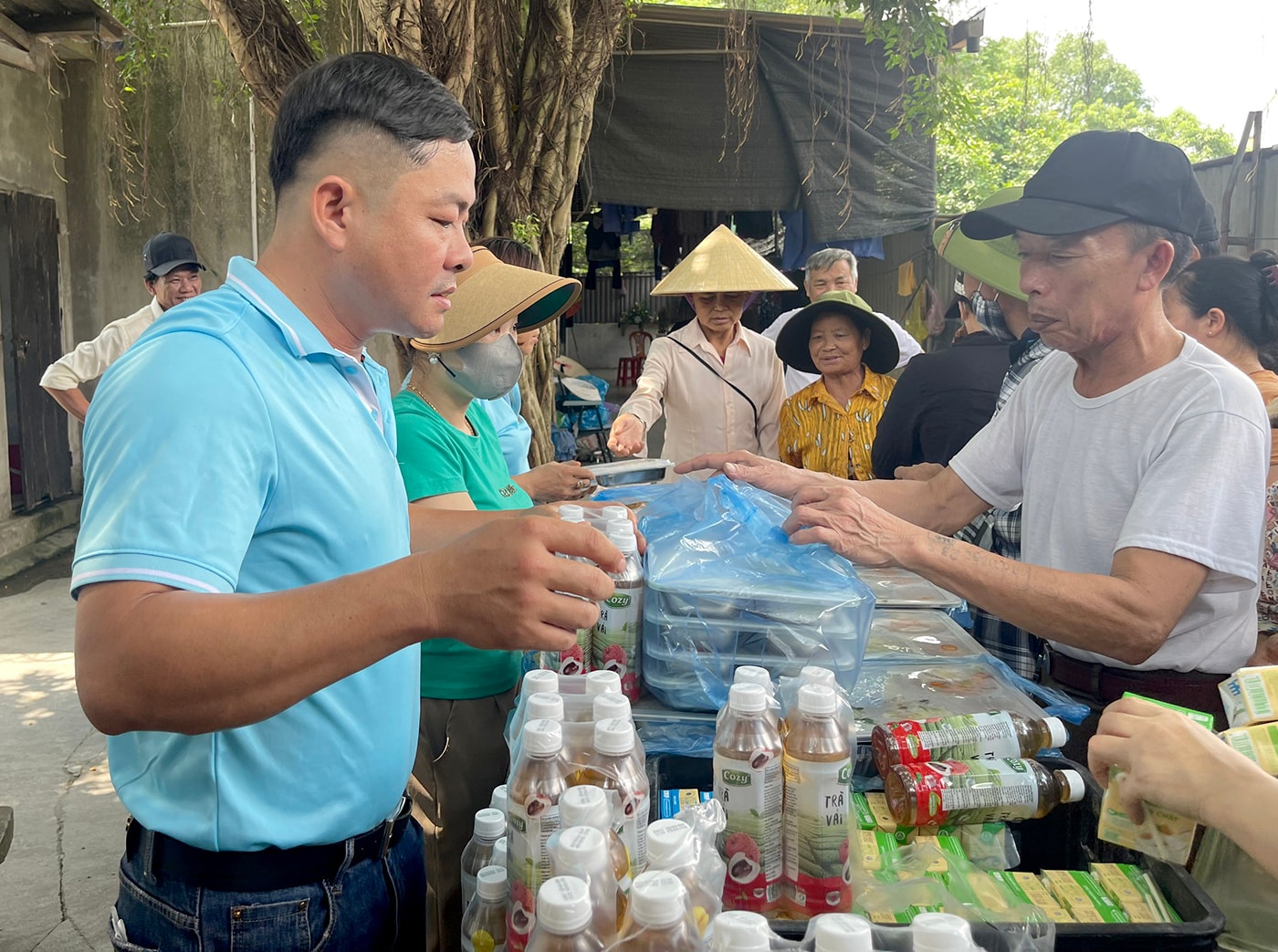
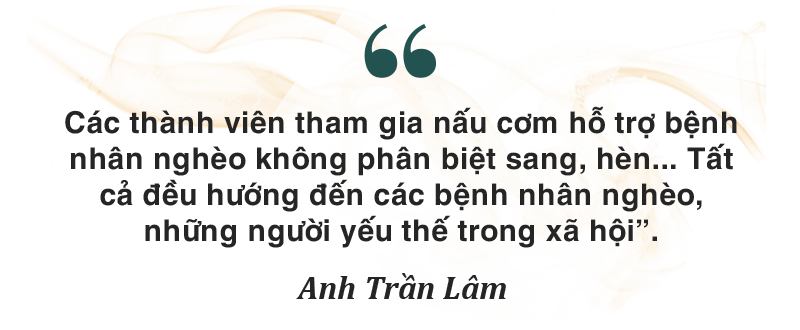
In addition to cooking 100 meals for dialysis patients in Nghi Phu commune, Nhat Duyen Rice Kitchen also cooks dumplings for dialysis patients at Vinh City General Hospital, branch 2 (in Quan Bau ward), and every Sunday afternoon, supports 120 porridge portions for patients at Nghe An Hematology - Blood Transfusion Center...
Leaving the “dialysis village”, I understand that for kidney failure patients, they know that no miracles happen in life. Every day, they still have to face pain and fatigue. But the love, care, sharing under one roof and timely encouragement from the community are the precious feelings, helping them have more faith, hope and motivation to overcome difficulties and diseases…
